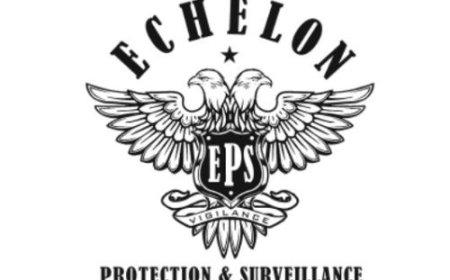Mastering the Art of Scientific Writing: Your Guide to Academic Success in Germany

In today's competitive academic environment, the ability to express knowledge clearly and convincingly through scientific writing is essential. Whether you are a first-year undergraduate or a postgraduate researcher, your ability to write assignments effectively can greatly influence your academic performance. Germany, known for its rigorous education system and high standards, places a strong emphasis on well-structured assignments and research papers. Understanding how to write a good assignment is therefore crucial for success in German universities.
In this article, well explore the key components of scientific writing, discuss practical steps to improve your academic writing, and shed light on the growing assignment vision in Germany, which emphasizes clarity, evidence-based analysis, and originality.
What is Scientific Writing?
Scientific writing refers to the process of creating academic or technical documents that communicate ideas, theories, methods, results, and conclusions in a clear and concise manner. Unlike creative writing, scientific writing avoids ambiguity and focuses on precision, logical structure, and evidence-based arguments.
Typical examples of scientific writing include:
-
Research papers
-
Dissertations and theses
-
Lab reports
-
Conference abstracts
-
Case studies
In German universities, students are expected to adopt scientific writing styles even in their regular coursework. Professors and instructors look for work that reflects analytical thinking, thorough research, and a formal tone.
Why Scientific Writing Matters in Germany
Germany is a global hub for education, research, and innovation. Its academic institutions are ranked among the best in the world, partly because of their strict adherence to academic standards. When international and domestic students enroll in German universities, they quickly discover that the ability to write scientifically is not optionalit is expected.
The emphasis on scientific writing stems from Germany's focus on producing independent thinkers and capable researchers. Whether you are writing a report on renewable energy technologies or a case study in psychology, your ability to present logical arguments, cite credible sources, and avoid plagiarism defines your academic credibility.
How to Write a Good Assignment: A Step-by-Step Guide
Crafting a high-quality academic assignment involves more than just putting ideas on paper. Below is a detailed step-by-step guide on how to write a good assignment, especially tailored for students studying in Germany.
1. Understand the Assignment Brief
Before you begin, carefully read the assignment instructions. Identify:
-
The topic
-
The format (essay, report, presentation)
-
Word count
-
Citation style (APA, MLA, Chicago)
-
Submission deadline
In Germany, deviating from the assigned structure or failing to follow instructions can result in poor gradeseven if your content is strong.
2. Research Thoroughly
Use reputable sources such as:
-
Google Scholar
-
University library databases
-
Peer-reviewed journals
Take notes and organize your research into themes. Germanys academic culture values originality and depth, so avoid relying solely on Wikipedia or general blogs.
3. Develop a Clear Thesis Statement
A strong thesis is the backbone of your assignment. It tells the reader what to expect and what your argument or position is. For example:
This paper evaluates the impact of solar energy adoption in German households and argues that government subsidies have significantly accelerated the transition.
4. Create an Outline
Organize your main points before you start writing. A typical scientific assignment follows this structure:
-
Introduction
-
Literature Review or Background
-
Methodology (if applicable)
-
Analysis or Main Discussion
-
Conclusion
-
References
Outlining keeps your writing focused and logical.
5. Write with Clarity and Precision
Use formal language. Avoid:
-
Slang
-
Unverified claims
-
Vague expressions
Instead, use evidence to support every argument. For instance, rather than writing many people think solar energy is useful, say A 2023 study by the Fraunhofer Institute found that 67% of German households view solar energy as a cost-effective alternative.
6. Edit and Proofread
After writing your first draft, take time to revise. Check for:
-
Grammar and punctuation
-
Sentence structure
-
Logical flow
-
Proper referencing
Using tools like Grammarly or Hemingway Editor can help polish your text. Also, ask a peer to review your work for a fresh perspective.
Assignment Vision in Germany: Shaping Academic Excellence
Germanys education system has evolved with a strong emphasis on independent learning and critical thinking. The assignment vision in Germany is not just about grading studentsit's about preparing them for professional and research-oriented careers.
Key elements of this vision include:
-
Academic Integrity: German institutions have strict policies against plagiarism. Scientific honesty is paramount.
-
International Standards: Assignments must meet global academic standards in writing, referencing, and argumentation.
-
Skills Development: Assignments are used to develop transferable skills like research, analytical thinking, and written communication.
As a result, German universities often provide writing centers, workshops, and peer support programs to help students improve their academic writing.
Tools and Resources for Better Scientific Writing
To meet the high expectations of German academic institutions, consider using these tools:
-
Zotero / Mendeley: Citation managers that help organize sources and generate reference lists.
-
Grammarly: For grammar checks and writing suggestions.
-
Hemingway Editor: Highlights complex sentences and suggests simpler alternatives.
-
Google Scholar: Excellent for finding peer-reviewed articles and citations.
Additionally, students can benefit from professional editing services and academic writing support platforms that offer assignment guidance, especially tailored to the German education system.
Final Thoughts
Scientific writing is more than a skillits a mindset that values clarity, logic, and evidence. If you're studying in Germany or plan to enroll soon, investing time in learning how to write a good assignment will not only help you score well but also prepare you for a successful academic and professional journey.
The assignment vision in Germany aims to empower students with the tools to think critically, write clearly, and research ethically. By embracing this vision and following a structured approach to scientific writing, you can confidently navigate your academic path and contribute meaningfully to your field of study.
Author Bio
Hazel Rustin is an assignment vision in germnay writing consultant and higher education specialist with over a decade of experience helping students succeed in global academic environments. Her expertise includes scientific writing, research mentoring, and student support strategies in European education systemsparticularly Germany. Hazel is passionate about making academic writing more accessible and empowering students to reach their full potential.






































